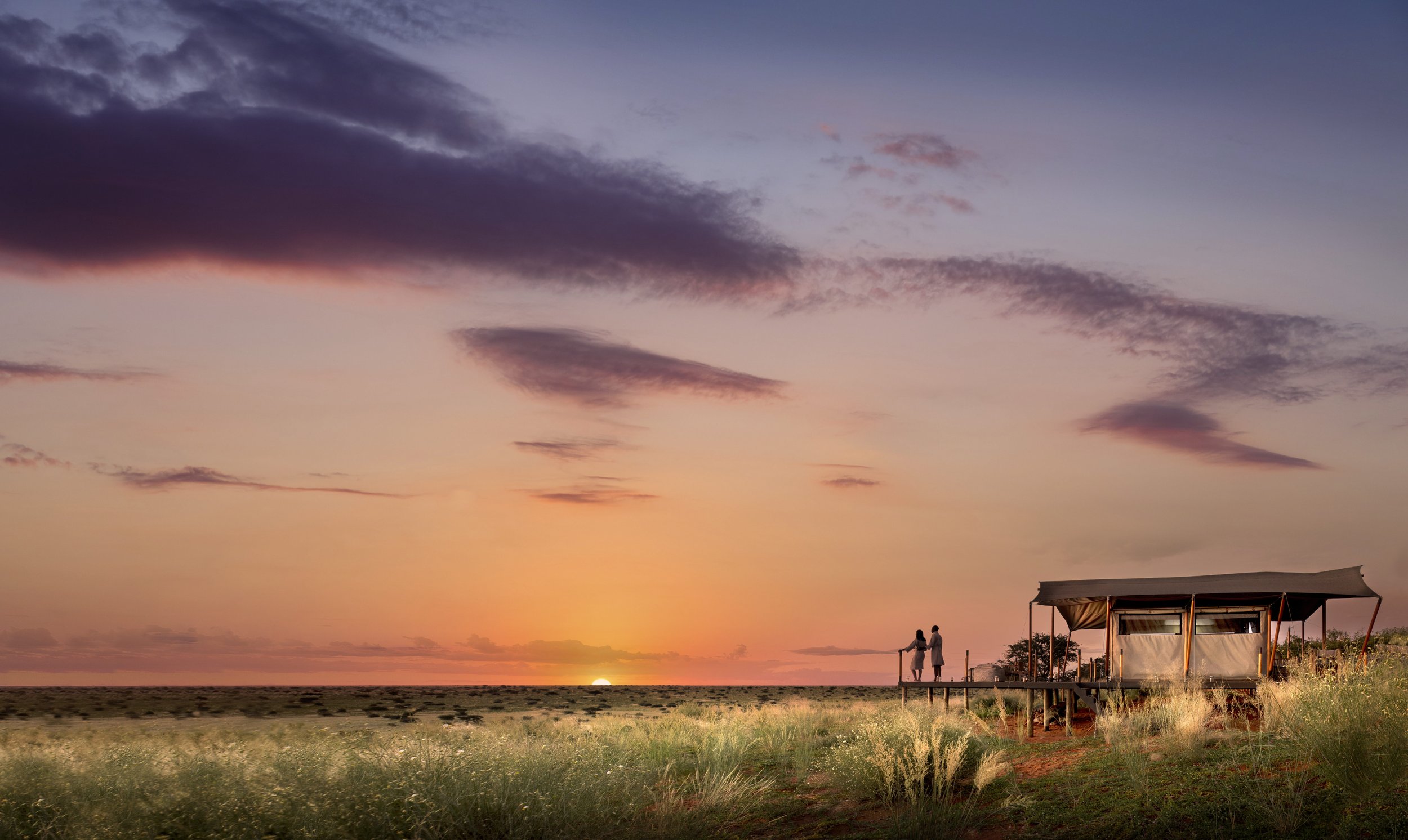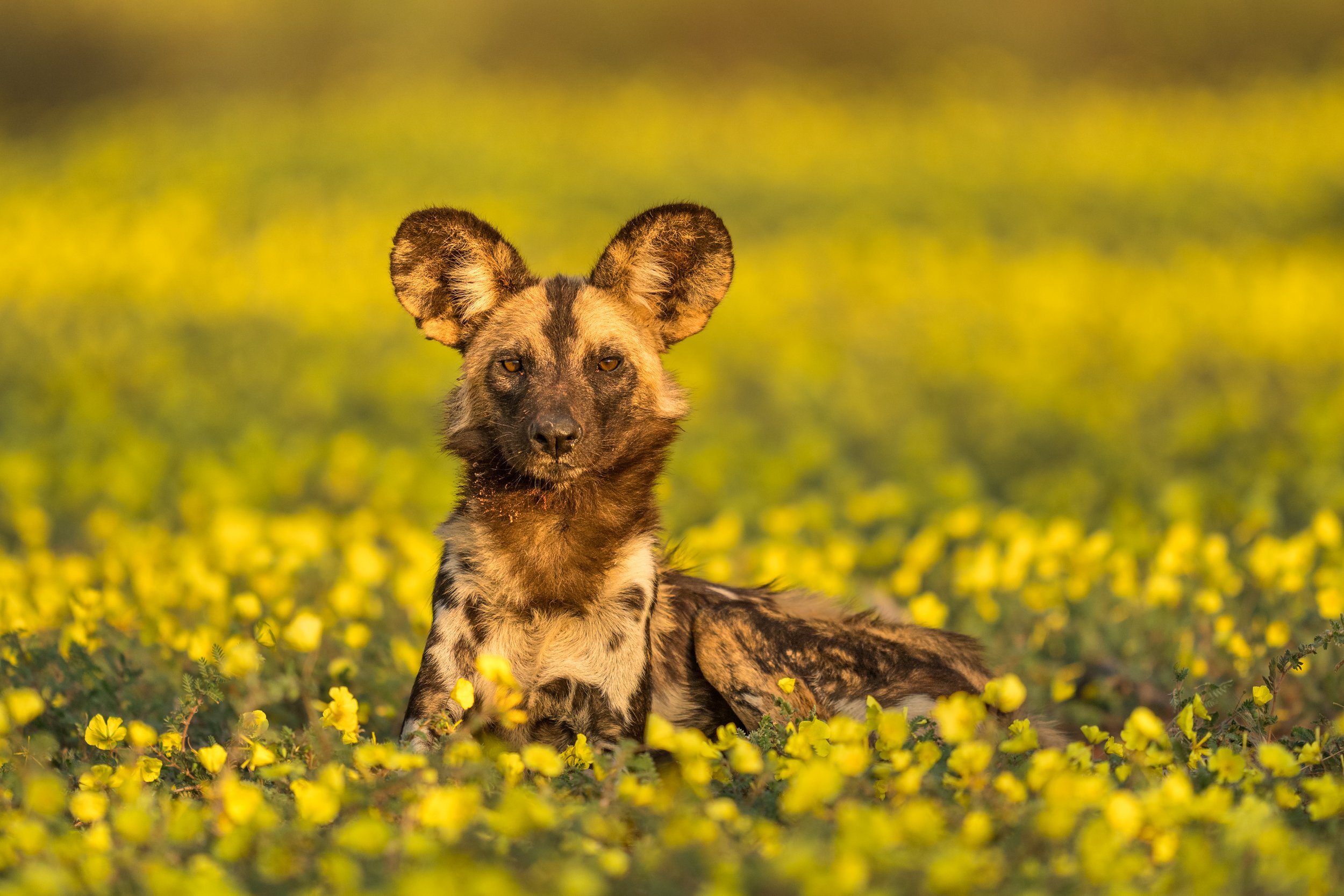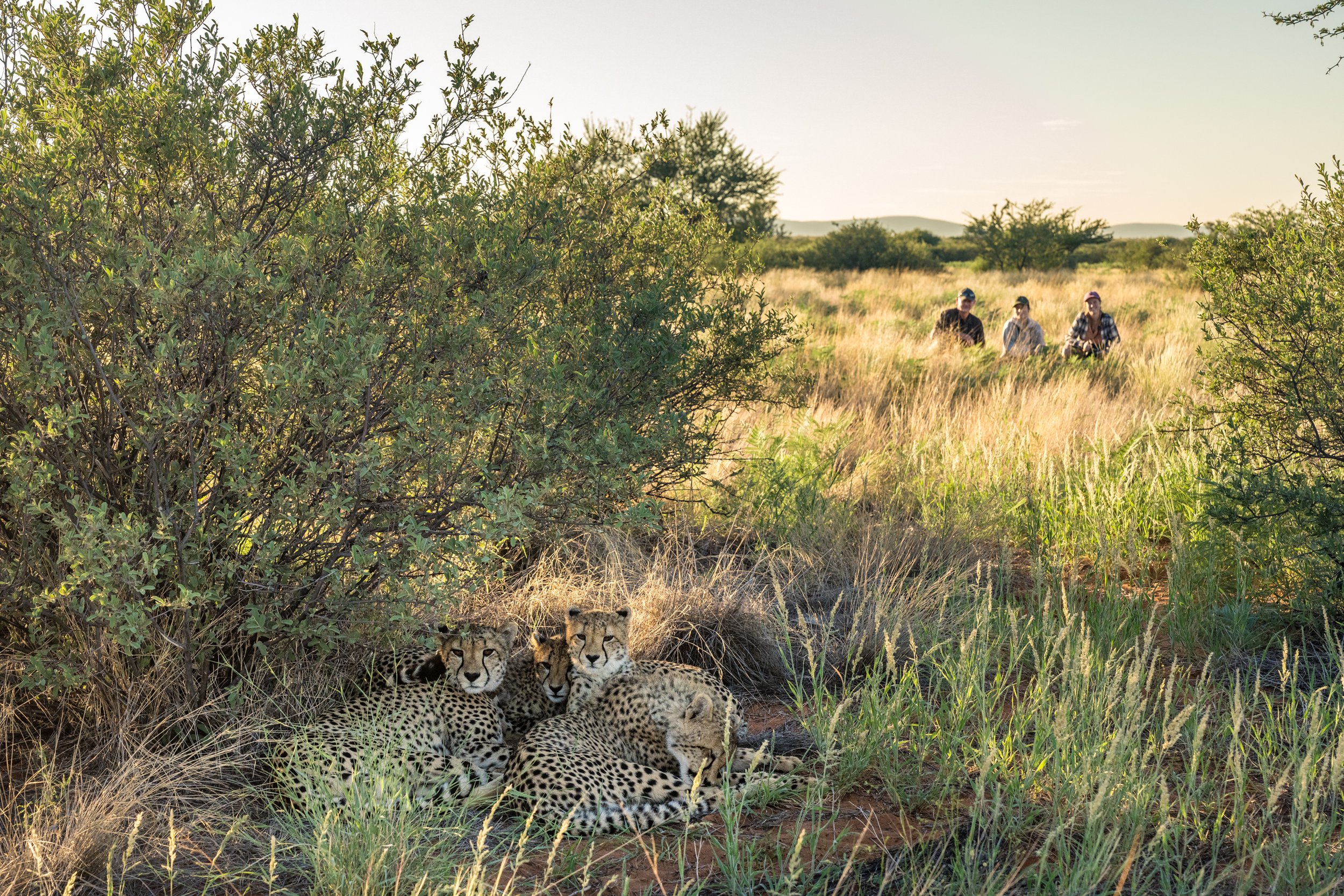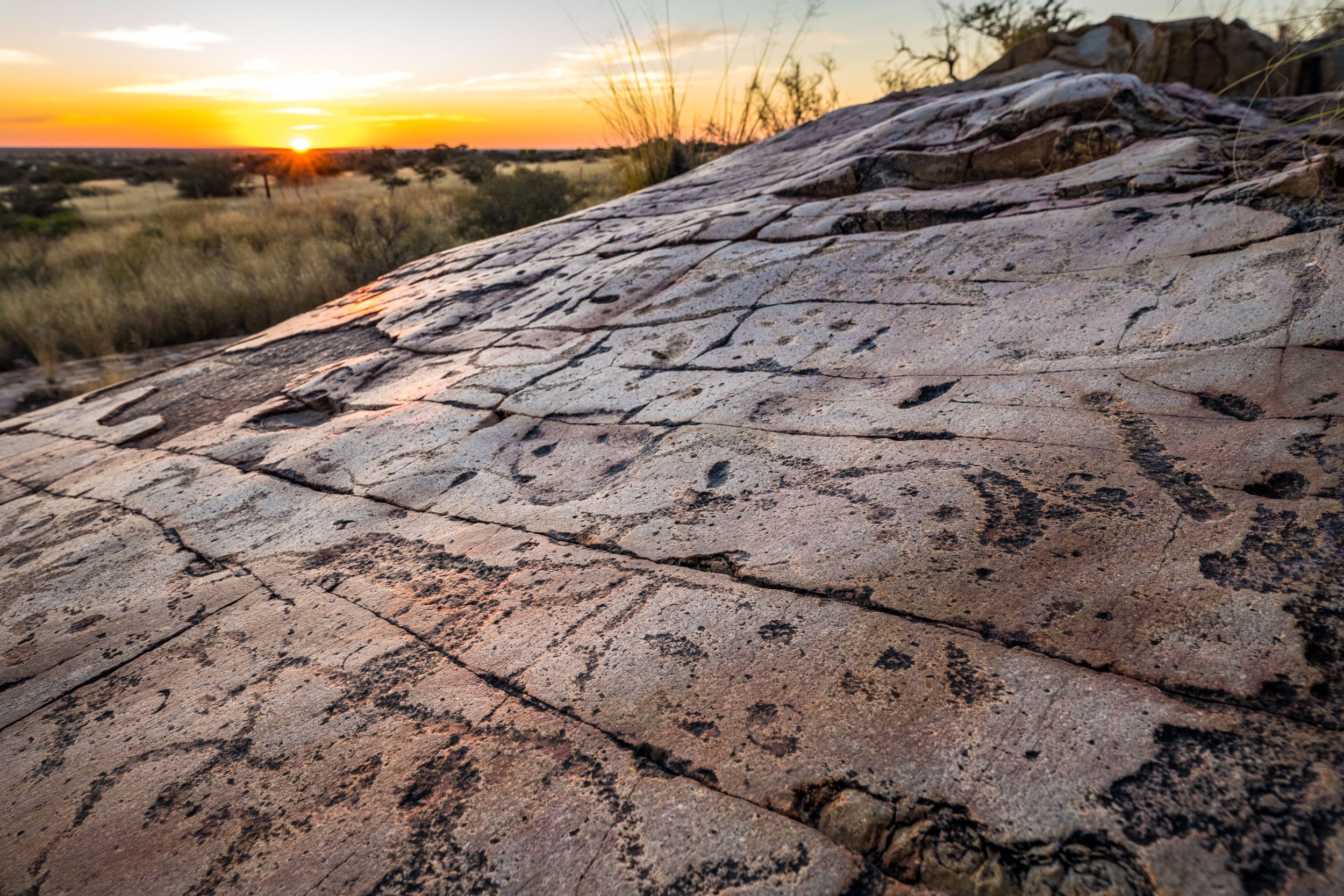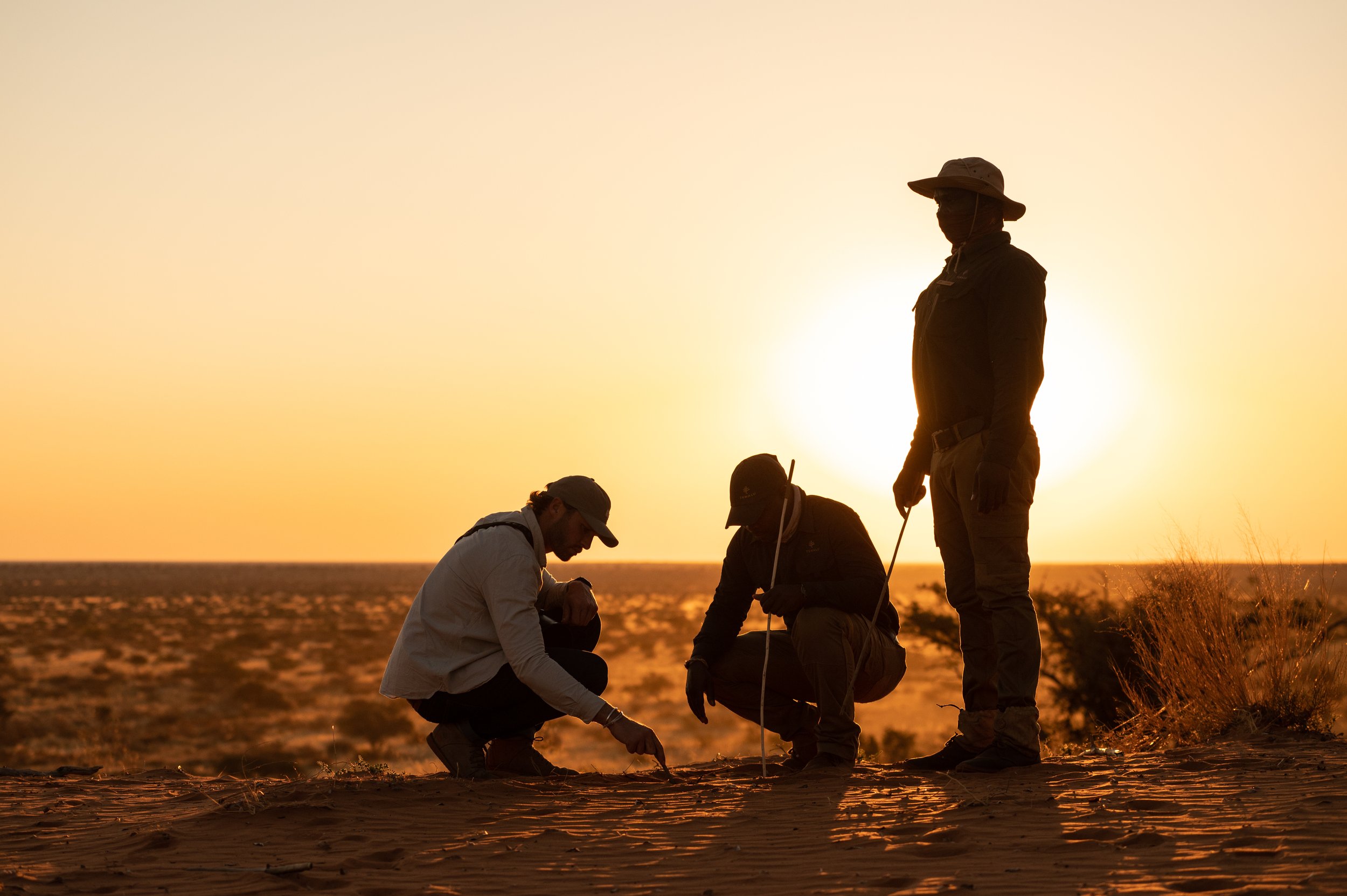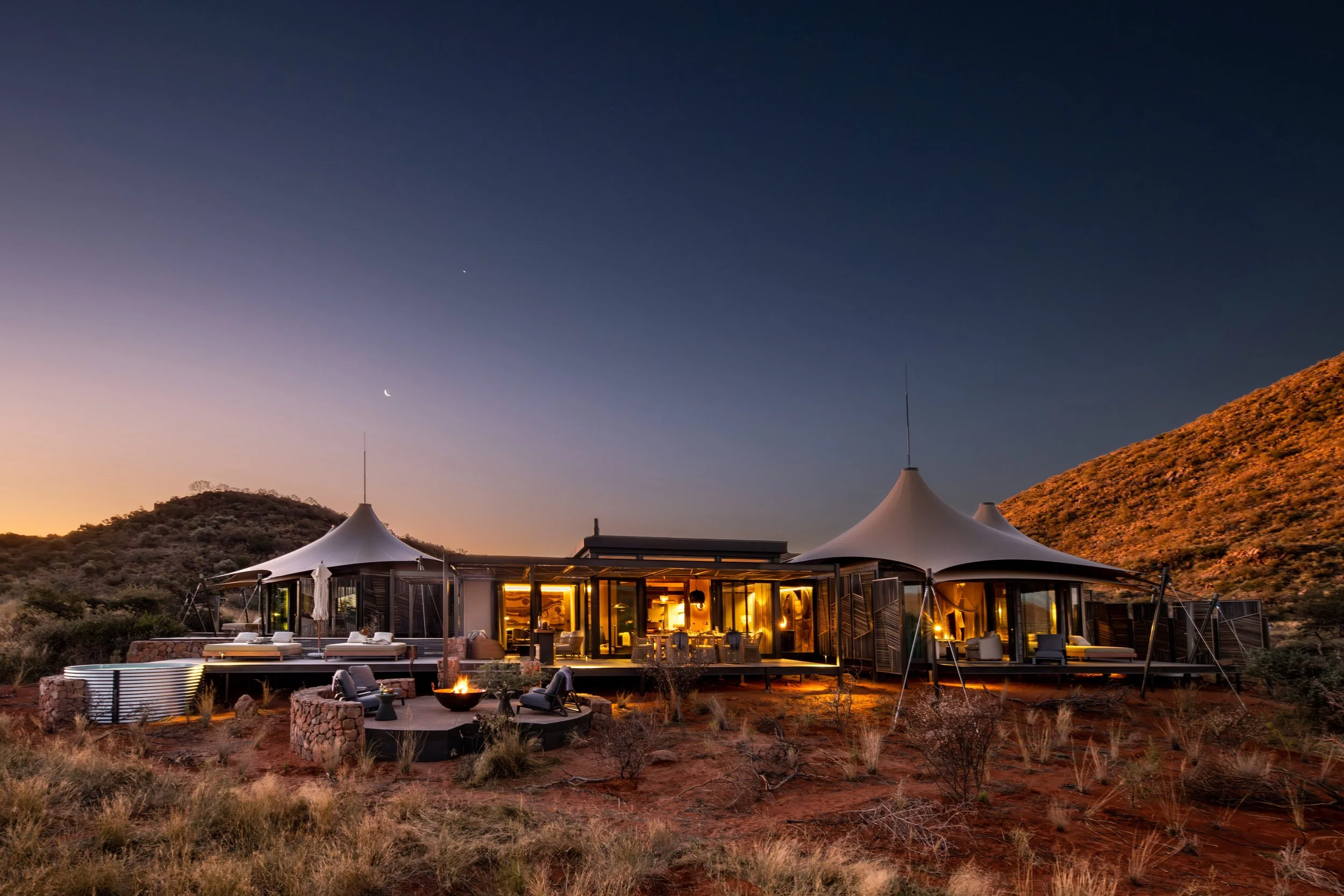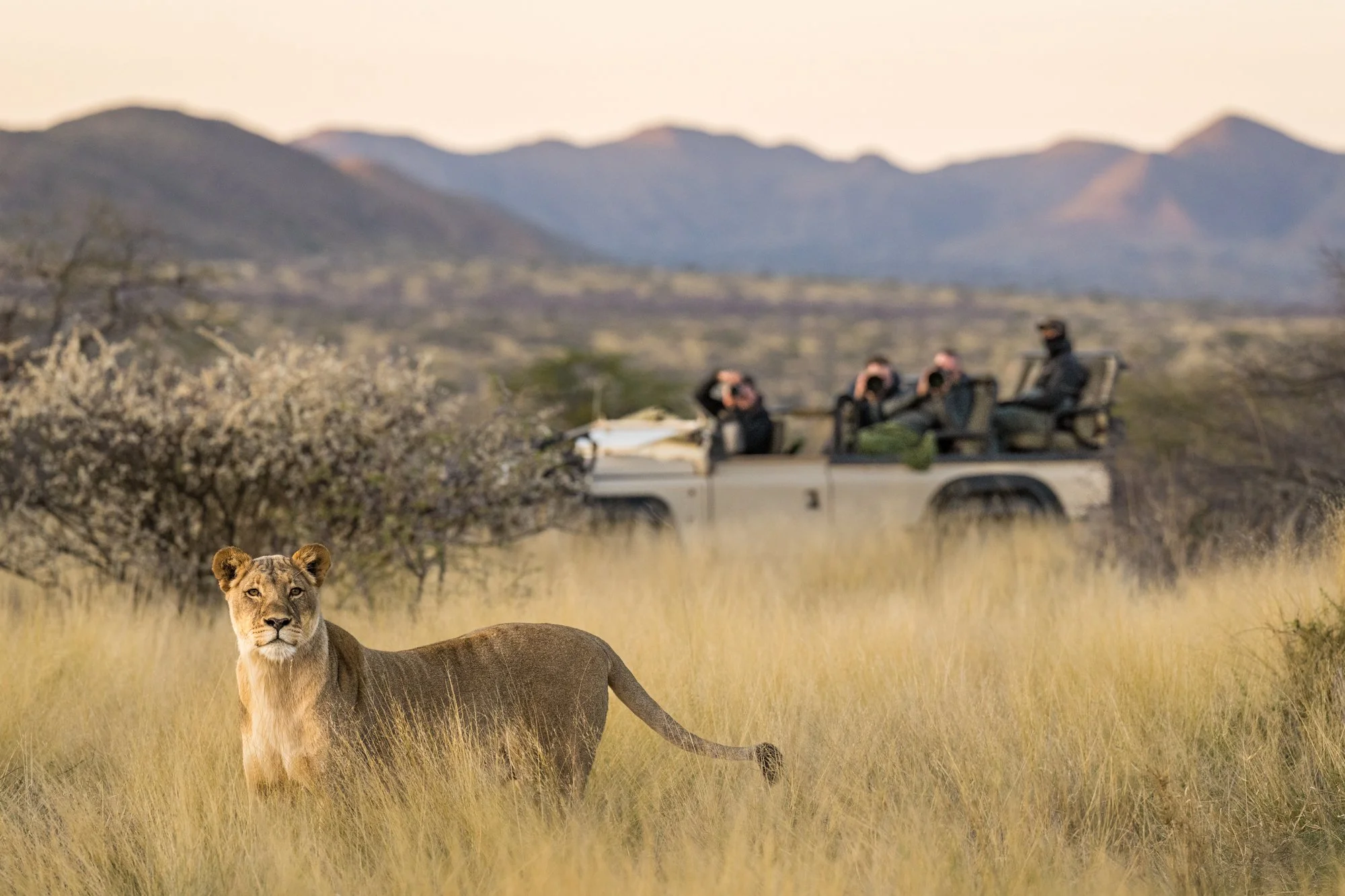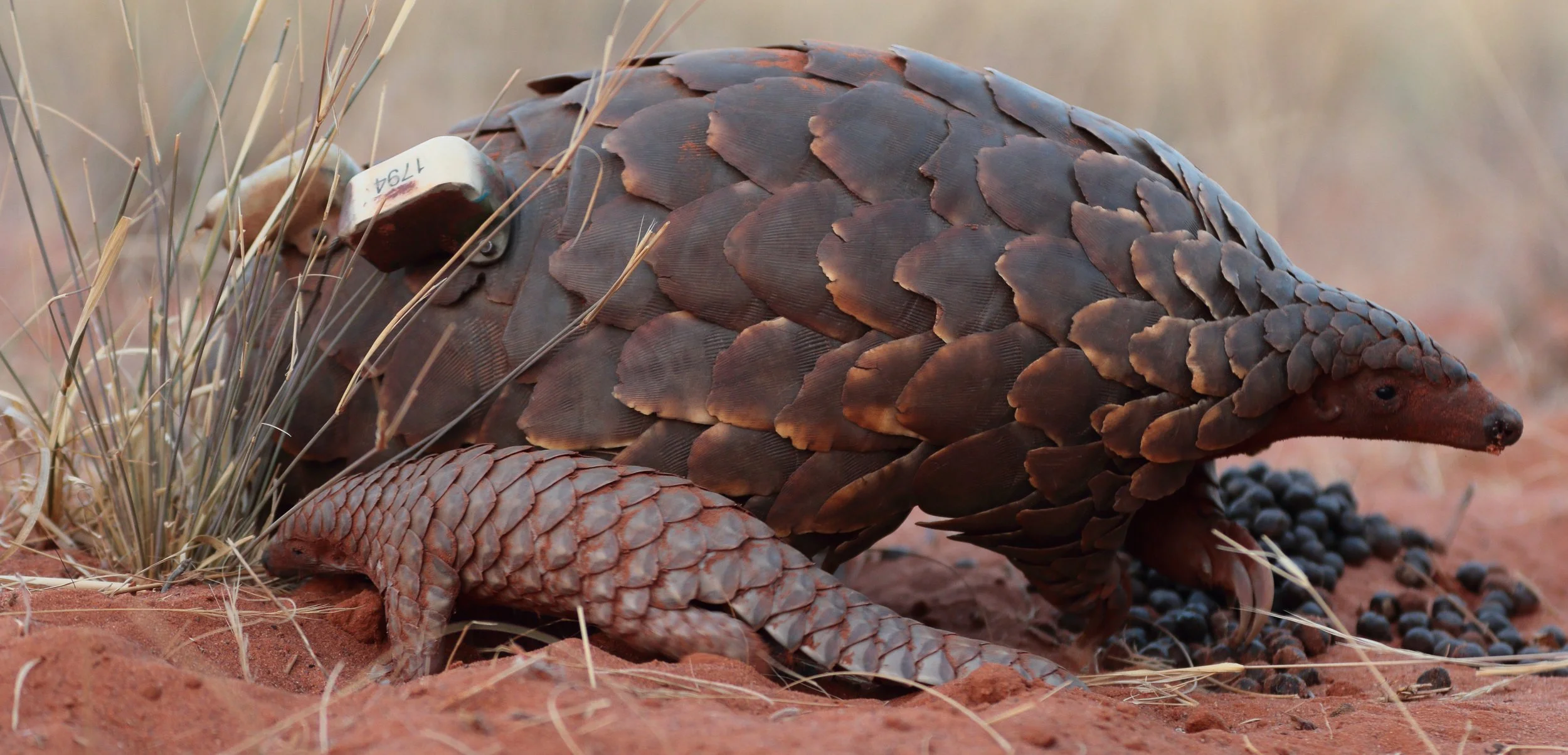Tswalu Kalahari Reserve
SOUTHERN KALAHARI, SOUTH AFRICA

Tswalu Kalahari Reserve
Eco Lodges
since OCTOBER 2024
since june 2020
At its core, Tswalu is an ambitious regeneration project conserving 118,000 hectares (292,000 acres) of biodiversity-rich wilderness in the semi-arid southern Kalahari. As the largest privately owned game reserve in South Africa, Tswalu’s successful conservation legacy of ecological restoration safeguards diverse habitats for fauna and flora to thrive. The reserve is dedicated to research-led conservation, cultural preservation, and the socio-economic development of a remote, underexplored region by leveraging the positive impact of high-value photographic safaris. Tswalu Kalahari Reserve is a certified Global Ecosphere Retreat®.
Tswalu’s rolling red dunes and arid savannah grasslands are punctuated by the ancient Korannaberg, a mountain range that contributes to greater habitat diversity than elsewhere in the Kalahari. The reserve is home to large predators, many rare and endangered animals, and species that help shape the ecosystem, such as aardvarks, meerkats, and springhares. Tswalu is renowned for its elusive species, such as brown hyena, Temminck’s ground pangolin, and aardwolf. The knowledge, skill and intuition of the trackers is an important part of the privately guided guest experience. Setswana names give local provenance to many landmarks on the reserve, including the three safari camps. From bush breakfasts and dune dinners to the experiential Klein JAN Restaurant, Tswalu’s cuisine is rooted in seasonal, hyper-local ingredients. Rock art sites, scattered across the reserve, document the culture and history of early inhabitants, such as the San people. Guests can also engage with researchers working on wide-ranging scientific projects supported by the Tswalu Foundation. The focus on sustainability encompasses resource efficiency, education and training, and health initiatives to positively impact the environment and the people that are part of the greater Tswalu community. By choosing this unique safari destination, guests become part of the owners’ vision to leave the world better than they found it.
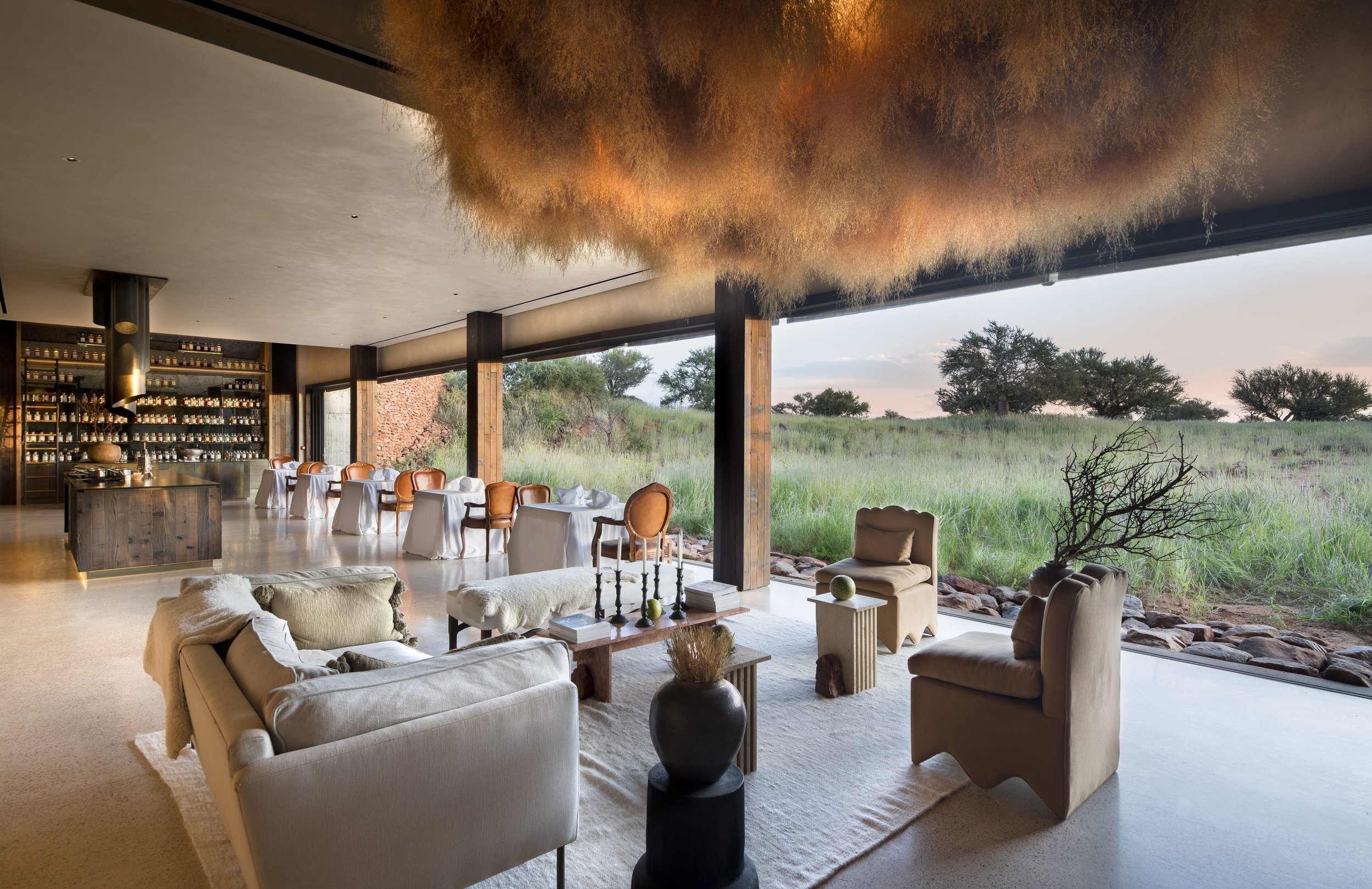
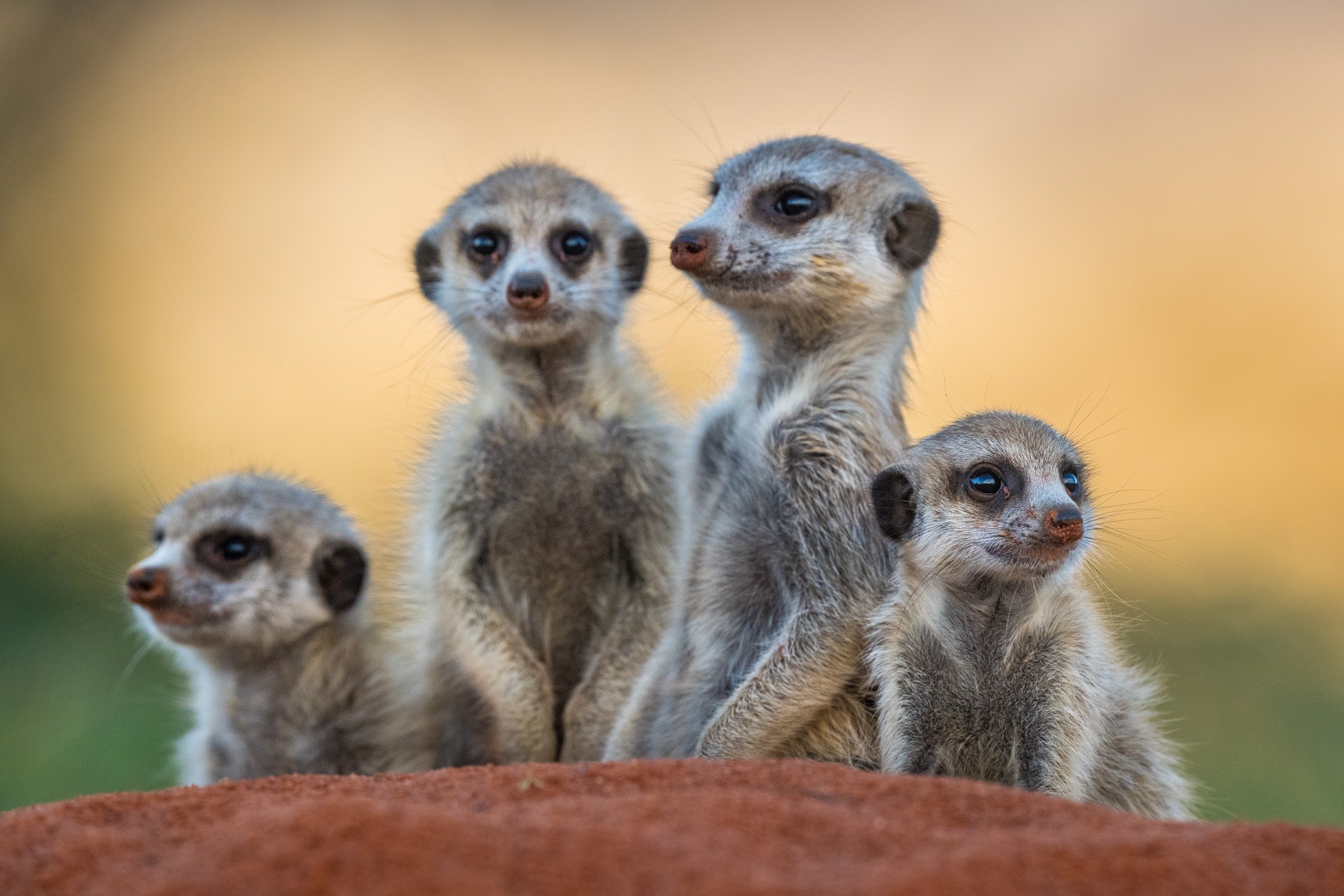
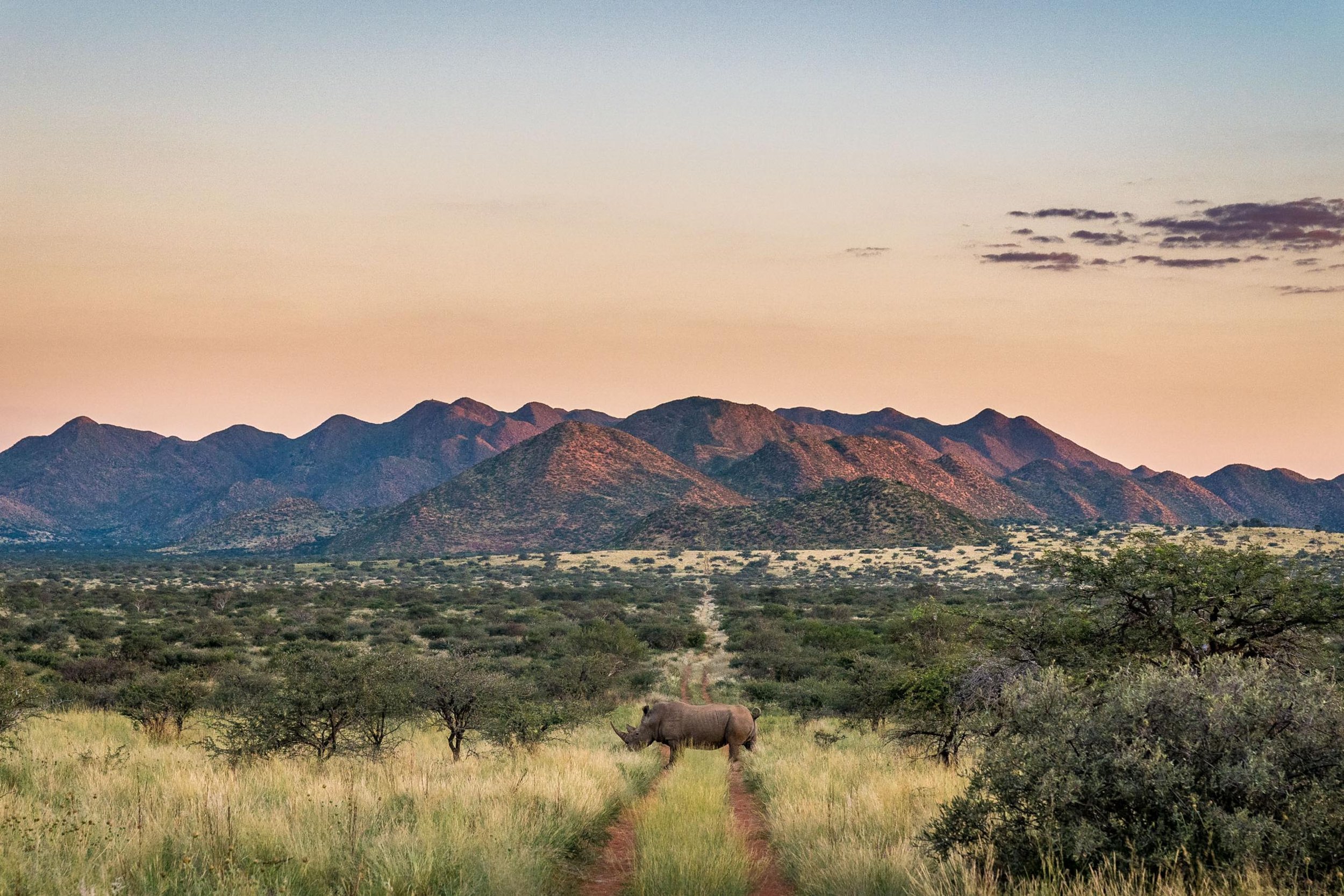
CONSERVATION
For almost 30 years, a regenerative approach to conservation has consolidated and restored over 50 ecologically degraded farms, bringing habitats back into balance, increasing biodiversity, and successfully reintroducing rare and endangered species.
The Tswalu Foundation actively supports various environmental research projects, with a special focus on studying the impact of climate change. Scientists from academic institutions worldwide use Dedeben Research Centre as their base for their research. Additionally, The Oppenheimer Research Conference is held annually in Johannesburg.
To date, the species count includes 80 mammals, 292 plants, 239 birds, 83 butterflies, and 26 dragonflies.
COMMUNITY
Tswalu's clinic is a fully equipped health care centre that provides access to healthcare for staff, their families, and the greater community and region, serving anybody within a 100-kilometre radius of the reserve.
Tshameka Preschool offers an educational foundation for staff children aged two to six, providing a space for them to learn and play, along with a daily nutritional meal.
The Adult Basic Education and Training (ABET) program is available to all staff during work hours.
Khutsong, a recreational centre, serves as a social hub for staff, promoting a sense of community and well-being. It includes a gym and a shop selling fresh produce.
CULTURE
The history, local lore, and traditional practices of the early inhabitants of the area are shared with guests. This includes language, food, edible and medicinal plants, animal tracking, protected rock art sites, and archaeological discoveries.
The dining experience celebrates South Africa's cultural diversity and is based on locally sourced, seasonal ingredients obtained ethically from small-scale farmers and suppliers in the region. The tasting menu at Klein JAN Restaurant highlights sustainably harvested indigenous ingredients.
An Artists in Residence programme provides South African artists with the opportunity to depict the vast landscapes, fauna, and flora of the southern Kalahari. A percentage of the proceeds from exhibitions is donated to the foundation.
COMMERCE
The positive impact of nature-based tourism adds almost US$6 million annually for the benefit of people and the planet.
Tswalu's presence creates local employment opportunities and contributes to various aspects of the local economy. Over 58% of employees come from the Northern Cape province, with 21% from the closest town, Vanzylrus.
Tswalu has been carbon neutral since 2019.
Tswalu Kalahari Reserve's Highlights
